2024 Survey Update
The First Amendment looms large in Americans’ minds as they consider the 2024 election, but overall awareness of the freedoms of religion, speech, press, assembly and petition is declining.
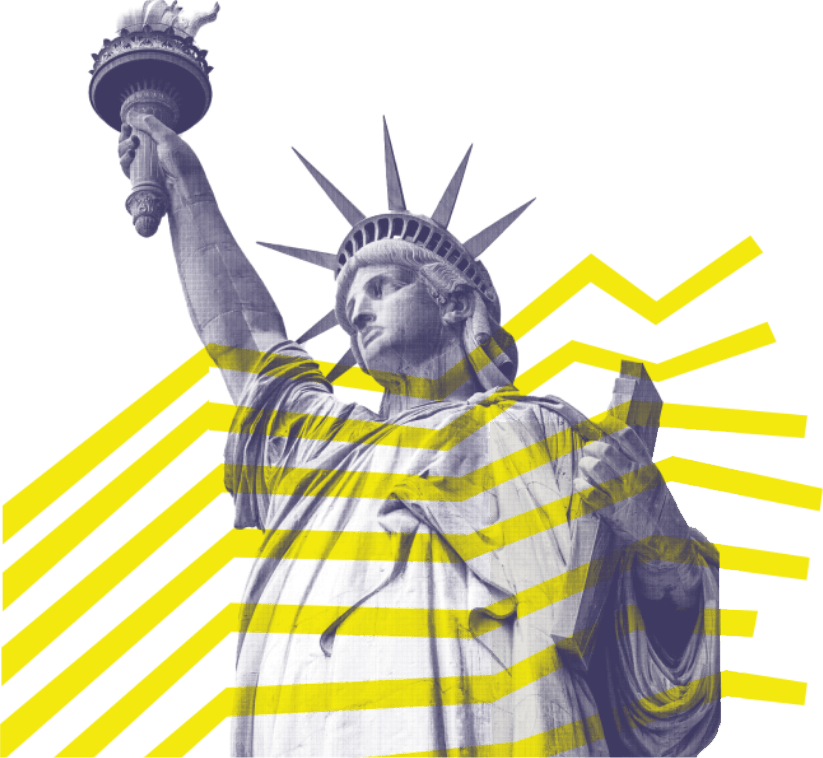
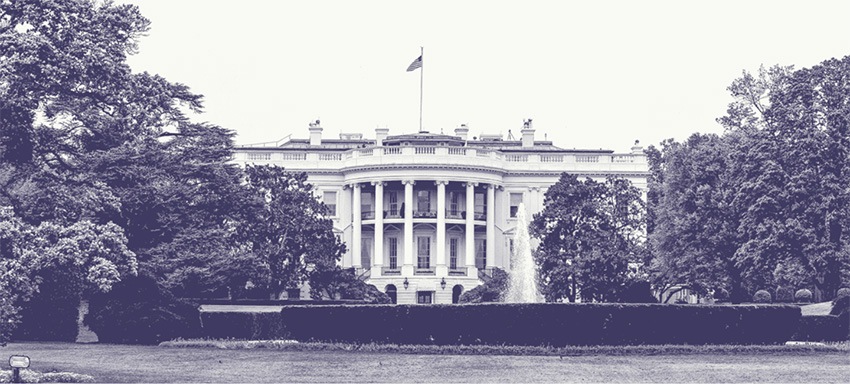
2024 Election and the First Amendment
More than half of Americans say their concerns over the First Amendment will impact how they vote this November.
Interestingly, Americans in the Northeast are more likely (at 60%) to say the First Amendment is relevant to their decision this fall than those in the Midwest (49%).
While the First Amendment is on most Americans’ minds as they head to the polls, their attitudes and perceptions of the candidates with respect to First Amendment rights are as divided as any issue.
42% of Americans consider Kamala Harris to be a “protector” of First Amendment freedoms, compared to 36% who view Donald Trump that way.

The First Amendment Matters in This Election
Just shy of one half of Americans (49%) consider Donald Trump to be either “a strong threat” or “somewhat of a threat” to the First Amendment, as compared to 37% who consider Kamala Harris to be either “a strong threat” or “somewhat of a threat” to their First Amendment freedoms.
When asked which candidate they consider a “protector” of First Amendment freedoms, 42% of Americans view Harris that way, compared to 36% holding that view of Trump.
Americans further stand divided on their perception of the candidates and First Amendment rights by age, region, race and income.
- Americans in the Northeast are more likely than those in the South to view Trump as a threat to First Amendment rights, while perceptions about Harris are considerably more consistent regionally.
- Baby boomers are more likely than younger generations to perceive Trump as a threat to the First Amendment.
- White respondents are more likely than other races to consider Harris a threat to the First Amendment, while Black respondents are more likely than other Americans to perceive Trump as a threat to the First Amendment.
- While middle-income Americans ($60K-$100K) are the most likely income segment to perceive Harris as a threat to the First Amendment, affluent Americans (income over $100K) are the most likely to perceive Trump as a First Amendment threat.
Misinformation and the Press
More than 70% of Americans say they’re extremely or moderately concerned about misinformation in the 2024 election. Generationally, baby boomers stand out as most concerned about misinformation, though at least 66% of every generation reported concern over misinformation.
Americans are divided over how to address election-related deepfakes. One-third would support requiring deepfakes be labeled as such; 29% would support banning election-related deepfake videos altogether; and 23% say nothing should be done.
Most Americans (56%) continue to believe that it’s important for the news media to be a watchdog on government. Fewer (41%) believe that the news media can help ensure a fair election, while 30% say it cannot and nearly as many aren’t sure.
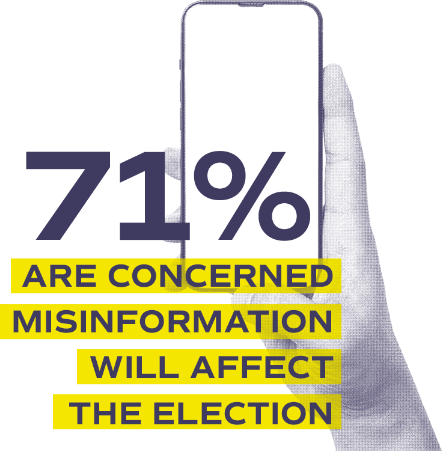
Religion in Public Life
Religion is consistently the second-most known and valued among First Amendment freedoms, after freedom of speech. Among First Amendment freedoms, 13% say religion is most essential, a number that is consistent with results dating back to 2020.
Awareness of each freedom, including religion, has decreased since 2020, with 62% able to identify religion from a list compared to 75% in 2020.
Among Americans who self-censor on certain topics for fear of backlash over their views, 21% say they do not feel they can speak freely about religion compared to 27% who say they cannot openly discuss gender, 24% who say abortion and 23% who say race.
Just over half of Americans (54%) say that Christian values should not get more protection than other faiths. About three in 10 (27%) weren’t sure, and 18% said Christian values should be more protected than other faiths. Baby boomers were least likely to say Christian values should be especially protected, as were white and Asian respondents.
Religion in Schools
When it comes to displaying the Ten Commandments in classrooms, as a new law requires in Louisiana, 29% of Americans say public schools should be required to do so while 45% say they should not. Asian respondents and higher-income respondents were least likely to agree with displaying the Ten Commandments in classrooms.
Half of Americans (51%) say that tax dollars should not fund religious schools, while 20% said religious schools should be publicly funded.
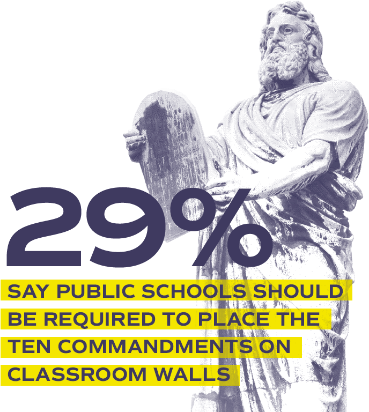

Worrisome Trends in First Amendment Perception
Freedom Forum has been tracking Americans’ relationship with the First Amendment for decades. Americans are as aware as ever that the First Amendment exists, with 96% saying they have heard of the First Amendment. Literacy overall (the ability to correctly name at least one of the rights guaranteed by the First Amendment) is also holding steady at approximately 96%.
It's encouraging that Americans are aware of the First Amendment and are thinking about it as they head to the polls. However, worrying trends are emerging in the data as well:
- Americans are considerably less likely to identify freedom of religion and freedom of press as rights guaranteed by the First Amendment than they were four years ago.
- Americans’ ability to correctly identify freedom of religion as a freedom protected by the First Amendment dropped to 62% in 2024, a 17% decline from 2020 numbers.
- Similarly, Americans’ recognition of freedom of press as a First Amendment right dropped to 57%, a 15% decrease from 2020.
- Americans’ correct recognition of all five freedoms has declined in the past four years and recognition of freedom of petition remains in the minority at 41%.
A declining share of Americans say they would ratify the First Amendment today if it were up to them.
- While Americans are holding steady at about 93% saying the First Amendment is vital, a declining share feel that all five First Amendment freedoms hold equal value. Today, one-third (34%) of the country says all are equally essential, down from 41% four years ago.
- Concerning rifts are growing in the country as appreciation for First Amendment freedoms — historically a national unifier — is increasingly segmented by race, age and class.
- Older respondents, white respondents, and those with moderate incomes (between $60K and $100K) are all statistically more likely to say that the First Amendment is vital compared to younger respondents, respondents of color, and those with both higher and lower incomes.
- Also concerning: Generationally, Americans are becoming more likely to agree with the statement, “The First Amendment goes too far in the rights it guarantees.” Only 10% of boomers agree with this statement, as compared to 17% of millennials. Millennials also stand out as being statistically more likely than both boomers and Gen X to agree with the statement, “The First Amendment goes too far and should be amended.”
- Furthermore, a declining share of Americans say they would ratify the First Amendment today if it were up to them.
- More than a third of Americans say that preventing hate speech is more important than preserving free speech. Four in ten say hate speech should not be protected.
The First Amendment protects hate speech. Should it?
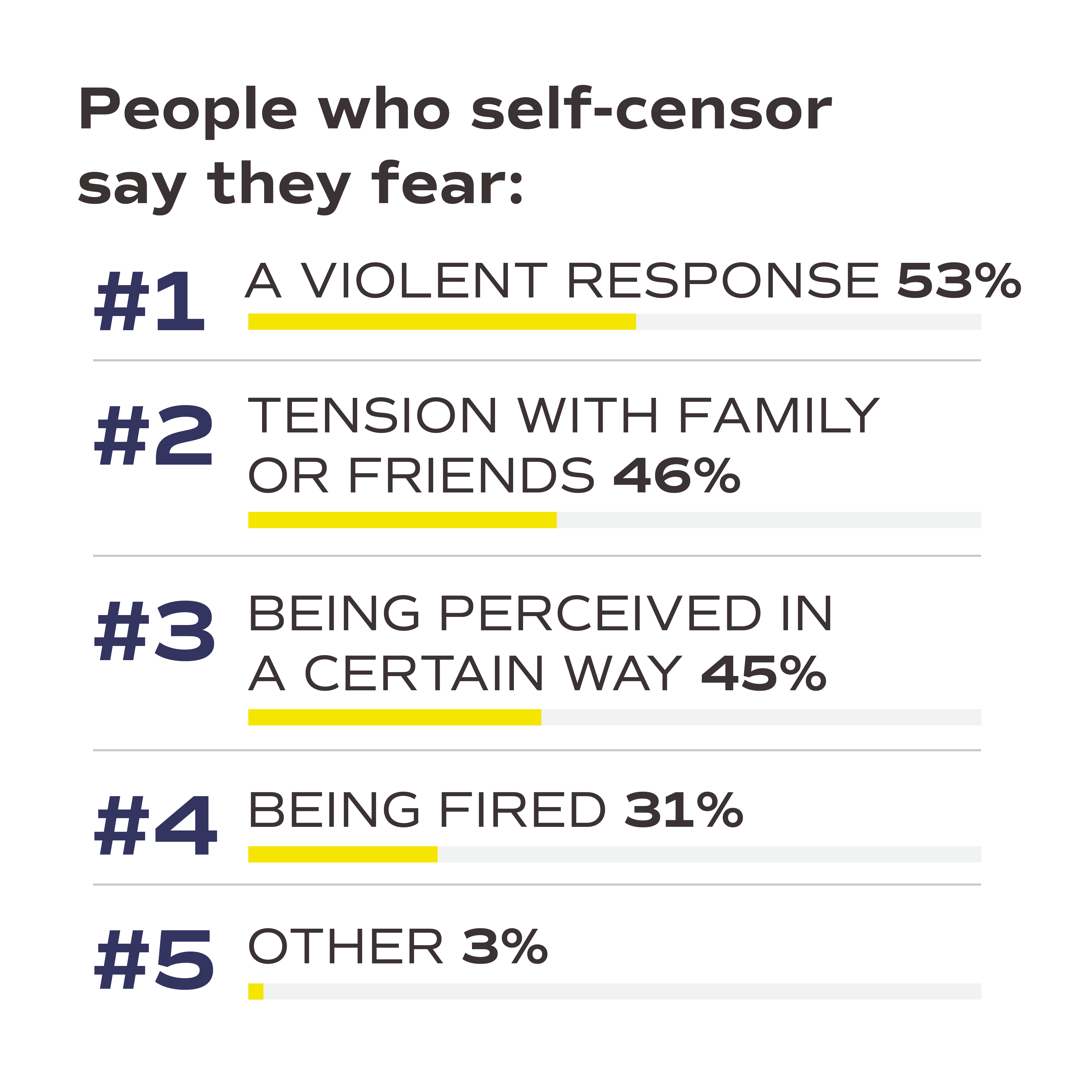
While not strictly a First Amendment issue, most Americans say they don’t feel they can speak freely about controversial topics for fear of job loss, a violent response, tensions with friends and family or perceptions about them.

Campus Speech and Freedom of Assembly
Campus protests in 2024 seem to have complicated Americans’ views on the First Amendment and freedom of assembly:
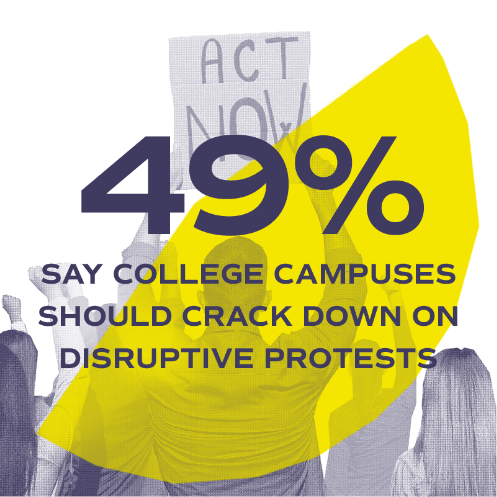
- Nearly three-quarters of Americans (72%) feel that a peaceful protest is fine, but taking over campus buildings and encampments goes too far.
- Nearly half (49%) say campuses need to crack down on protests because they undermine education and make students feel unsafe, but 21% disagree and 30% weren’t sure.
- Not specific to campus protests, half (51%) say that organizers of a protest or demonstration should be held liable if violence occurs, regardless of who caused the violence.
- Six in 10 Americans (61%) agree that college campuses should foster a free exchange of ideas, even if they are offensive to some. This is a decrease from 66% just last year. Gen Z participants continue to agree with this statement at a significantly lower rate (46%) than other generations.
- Interestingly, the topic of campus protest may have raised (some) literacy around First Amendment issues. Nearly half (45%) realize the First Amendment treats public and private universities differently, as compared to only 23% who understand that the First Amendment doesn’t apply to private workplaces.
Still, There’s Hope
An increasing number of Americans (63%) believe the First Amendment should not be changed.
This is up from 2020, when only five in ten Americans said so.